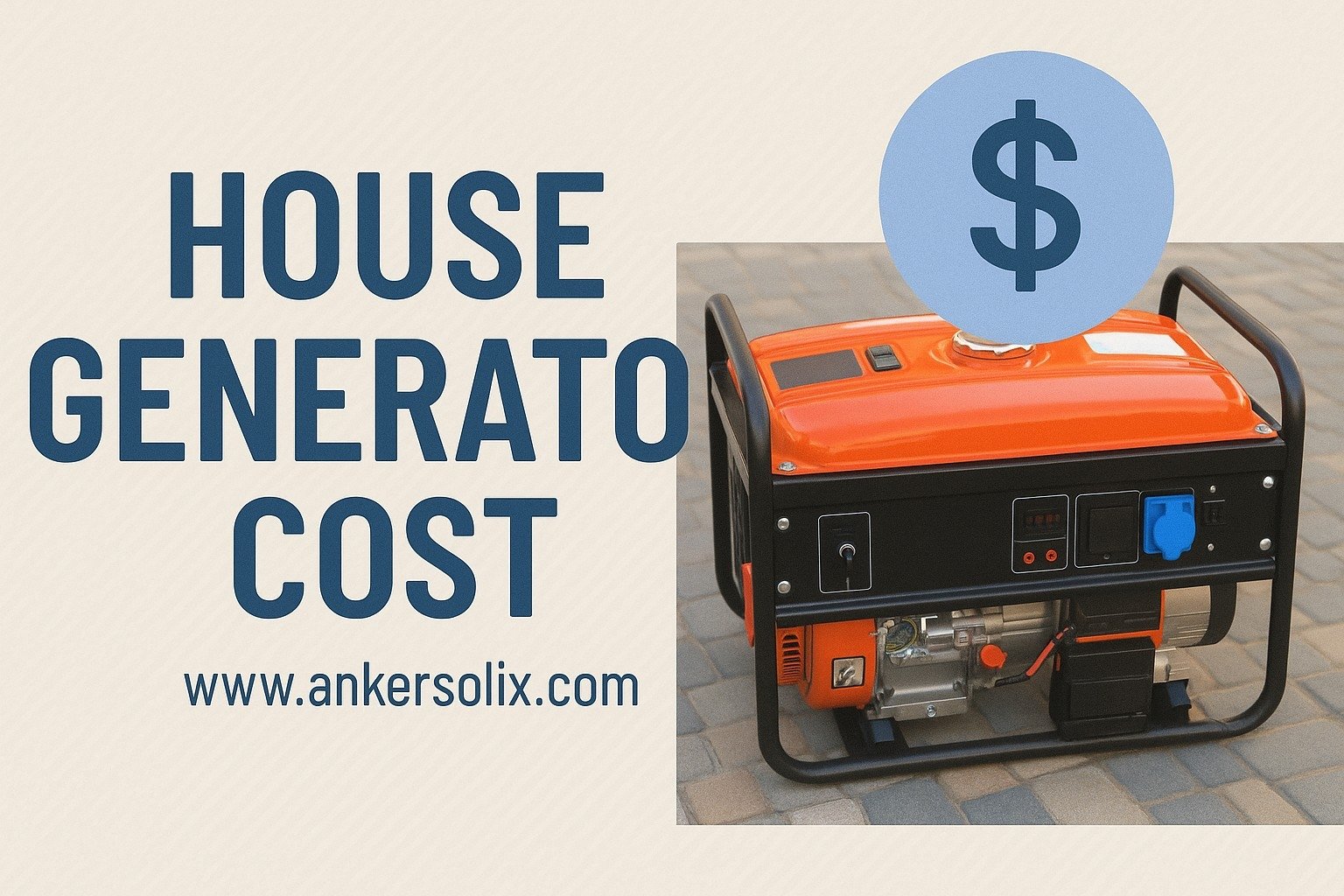The rising frequency of power outages has made home generators more of a necessity than a luxury. Whether it’s to protect your home’s essential appliances or maintain comfort during unexpected blackouts, having a generator ensures peace of mind. However, understanding the real house generator cost goes beyond just the price tag on the unit.
In this article, we break down every component of home generator pricing from unit types to installation fees and maintenance. By the end, you’ll know exactly what to expect when budgeting for backup power in 2025.
Why Home Generators Are a Smart Investment
According to the U.S. Energy Information Administration (EIA), power outages are becoming more frequent and lasting longer, with the average American experiencing over eight hours of power loss annually. For many homeowners, this isn’t just inconvenient, it’s costly. Refrigerated food spoils, HVAC systems stop working, and critical medical devices become unusable.
Installing a home generator can:
- Prevent food spoilage
- Keep security systems running
- Maintain heating and cooling
- Power essential devices and appliances
When you compare these benefits with the potential losses during outages, the cost of a home generator quickly begins to look like a wise long-term investment.
Types of House Generators and Their Cost Ranges
The first thing that affects the total cost is the type of generator you choose. Here’s a breakdown of the most common types and their price ranges as of 2025:
1. Portable Generators
- Price Range: $400 – $2,000
- Use Case: Short-term, minimal power backup (appliances, lights)
- Pros: Affordable, easy to store
- Cons: Manual startup, limited capacity
2. Standby Generators (Whole House)
- Price Range: $3,000 – $15,000 (including installation)
- Use Case: Automatic power backup for the entire home
- Pros: Automatic transfer switch, high capacity
- Cons: Expensive, professional installation required
3. Inverter Generators
- Price Range: $500 – $2,500
- Use Case: Small homes, sensitive electronics
- Pros: Quiet, efficient, clean power
- Cons: Lower wattage, not ideal for whole-home use
Installation Costs: What to Expect
For standby generators, installation is a major component of the total cost. Depending on your location and the complexity of the setup, installation can add $2,000 to $5,000 to your project.
Installation Cost Breakdown:
- Permits & Inspections: $100 – $500
- Electrical Wiring: $600 – $2,000
- Gas Line Connection (for natural gas/propane): $500 – $1,200
- Transfer Switch Installation: $500 – $1,500
It’s strongly recommended to use licensed professionals, not only for safety but also to ensure your warranty remains valid.
Fuel Type and Operating Costs
Fuel source plays a significant role in both upfront and ongoing generator expenses. Here’s how the most common fuels compare:
| Fuel Type | Initial Setup Cost | Fuel Cost per Hour | Notes |
| Gasoline | Low | Moderate | Readily available, short shelf life |
| Propane | Moderate | Low | Clean-burning, long shelf life |
| Natural Gas | High (connection required) | Low to Moderate | Unlimited supply (via gas line) |
| Diesel | Moderate | High | Long runtime, best for high power loads |
Average annual fuel costs for standby use (assuming 30 hours/year):
- Gasoline: $100 – $150
- Propane: $80 – $120
- Natural Gas: $70 – $100
Maintenance and Long-Term Costs
A generator is a long-term investment, but it does come with upkeep. Maintenance ensures it functions properly during emergencies.
Annual Maintenance Costs:
- Oil Changes: $50 – $100
- Filter Replacements: $20 – $50
- Battery Checks: $30 – $80
- Professional Inspection: $100 – $200
You can expect to spend $200 – $400 per year on general upkeep. Many companies offer annual service contracts for convenience and peace of mind.
Tax Credits and Incentives (2025)
Under the 2025 federal energy efficiency guidelines, some whole-home generators powered by renewable sources or paired with solar installations may qualify for tax incentives.
You may be eligible for:
- Federal tax credit: Up to 30% (check eligibility based on generator type)
- Local utility rebates: $100 – $500 in some states
Make sure to check with your local energy provider or consult a tax professional to see what’s available in your region.
Total House Generator Cost Summary
Here’s an all-in estimate for installing a whole house generator in 2025:
| Cost Component | Average Price Range |
| Generator Unit | $3,000 – $8,000 |
| Installation & Labor | $2,000 – $5,000 |
| Permits & Wiring | $600 – $2,000 |
| Annual Maintenance | $200 – $400/year |
| Fuel (Yearly Estimate) | $70 – $150 |
Total Estimated Initial Cost: $5,600 – $15,000
Tips for Reducing Your House Generator Cost
- Shop offseason (late spring or early fall)
- Look for bundled installation deals
- Apply for rebates or tax credits
- Consider financing options from major retailers
- Buy from a trusted brand with a good warranty
Conclusion
Choosing the right generator isn’t just about performance, it’s about budgeting wisely. By understanding the full scope of the house generator cost, you can prepare for unexpected power outages without financial surprises.
Whether you need a simple portable backup or a whole-home solution, planning for unit price, installation, fuel, and maintenance ensures long-term value. In 2025, energy independence starts with the right investment.
Read more : Inverter Generator vs Generator!











